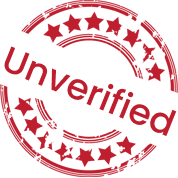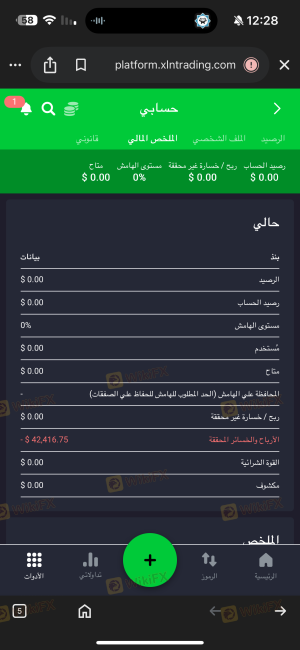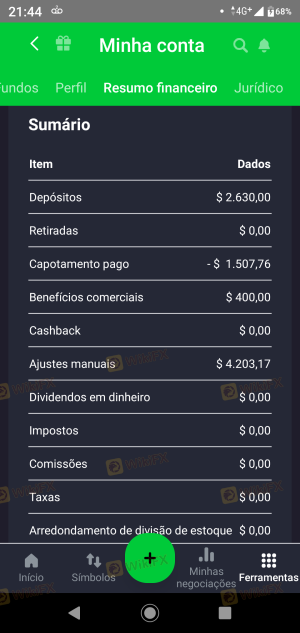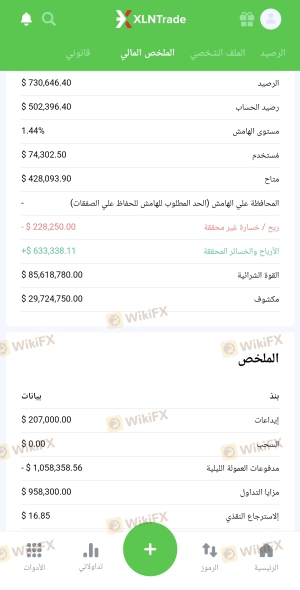Regarding the legitimacy of XLNTrade forex brokers, it provides FSA and WikiBit, .
Is XLNTrade safe?

Pros
Cons
Is XLNTrade markets regulated?
The regulatory license is the strongest proof.
FSA Derivatives Trading License (EP)
The Seychelles Financial Services Authority
The Seychelles Financial Services Authority
Current Status:
UnverifiedLicense Type:
Derivatives Trading License (EP)
Licensed Entity:
Securcap Securities Limited
Effective Date:
--Email Address of Licensed Institution:
tv@securcap.comSharing Status:
No SharingWebsite of Licensed Institution:
--Expiration Time:
--Address of Licensed Institution:
Office 4, Suite C2, Orion Mall, Palm Street Avenue, Victoria, Mahé, SeychellesPhone Number of Licensed Institution:
(+248) 4323763Licensed Institution Certified Documents:


Is XLNTrade A Scam?
Introduction
XLNTrade is an online forex and CFD broker that has positioned itself within the financial markets since its inception in 2018. Offering a variety of trading instruments, including currency pairs, commodities, and cryptocurrencies, XLNTrade aims to attract traders from diverse backgrounds. However, the forex market is notorious for its potential risks, and traders must exercise caution when selecting a broker. The need for thorough evaluation stems from the prevalence of scams and unregulated entities within the industry. This article investigates XLNTrade's regulatory status, company background, trading conditions, customer experiences, and overall safety to determine whether it is a trustworthy broker or a potential scam. The analysis is based on a comprehensive review of various online sources, trader feedback, and regulatory information.
Regulation and Legitimacy
The regulatory status of a broker is crucial in determining its legitimacy and the level of protection it offers to traders. XLNTrade claims to be regulated by the Financial Services Authority (FSA) of Seychelles. However, the effectiveness of this regulation is often questioned, as Seychelles is known for its lax regulatory environment. Below is a summary of XLNTrade's regulatory information:
| Regulatory Authority | License Number | Regulated Region | Verification Status |
|---|---|---|---|
| FSA | SD 012 | Seychelles | Verified, but low credibility |
The FSA is categorized as a Tier-3 regulator, which means it imposes minimal requirements on brokers. Unlike Tier-1 regulators such as the FCA in the UK or ASIC in Australia, the FSA lacks stringent rules regarding client fund protection, transparency, and operational practices. Furthermore, there have been allegations suggesting that XLNTrade may operate under a clone firm, utilizing the regulatory information of another entity without proper authorization. This raises significant concerns regarding the broker's legitimacy and adherence to regulatory standards.
Company Background Investigation
XLNTrade is operated by Securcap Securities Limited, a company registered in Seychelles. The broker claims to provide a wide range of trading services, but its history and ownership structure warrant further scrutiny. The management team behind XLNTrade has not been widely publicized, and there is limited information available regarding their professional backgrounds and experiences in the financial industry. This lack of transparency can be a red flag for potential investors.
The company's website states that it aims to maintain transparency and accountability, yet the absence of detailed disclosures about its management and operational practices raises questions about its commitment to these principles. Moreover, the broker's registration in an offshore jurisdiction, known for its lenient regulations, contributes to the overall perception of risk associated with trading through XLNTrade.
Trading Conditions Analysis
When evaluating a broker, understanding the trading conditions they offer is essential. XLNTrade presents a trading environment that includes various costs, such as spreads, commissions, and overnight fees. Below is a comparison of XLNTrade's core trading costs against industry averages:
| Cost Type | XLNTrade | Industry Average |
|---|---|---|
| Spread on Major Pairs | 3 pips | 1-1.5 pips |
| Commission Model | None specified | Varies widely |
| Overnight Interest Range | 0.02% for most | 0.01%-0.5% |
XLNTrade's spreads of 3 pips on major currency pairs are considerably higher than the industry average, which may indicate a less favorable trading environment for clients. Additionally, the broker does not clearly disclose its commission structure, creating uncertainty regarding potential hidden fees. Furthermore, the imposition of a high inactivity fee ($500 quarterly) for dormant accounts raises concerns about the broker's practices and may deter traders from maintaining their accounts.
Customer Fund Safety
The safety of customer funds is paramount when evaluating a broker. XLNTrade claims to implement certain safety measures, but the effectiveness of these measures is questionable. The broker does not provide clear information on segregated accounts, investor protection schemes, or negative balance protection policies. The absence of these critical safety nets can expose traders to significant risks, particularly in the event of the broker's insolvency or fraud.
Historically, there have been no widely reported incidents of fund mismanagement or security breaches at XLNTrade, but the lack of robust regulatory oversight increases the potential for such issues to arise. Traders must be cautious and consider whether their funds would be safe in the hands of a broker operating under a Tier-3 regulatory framework.
Customer Experience and Complaints
Customer feedback serves as a vital indicator of a broker's reliability. Reviews of XLNTrade reveal a mixed bag of experiences, with several users reporting negative interactions. Common complaints include difficulty withdrawing funds, high-pressure sales tactics, and poor customer support. Below is a summary of the main complaint types and their severity:
| Complaint Type | Severity Level | Company Response |
|---|---|---|
| Withdrawal Issues | High | Poor |
| Customer Support Accessibility | Medium | Poor |
| Misleading Promotions | High | Inconsistent |
One notable case involves a trader who reported being unable to withdraw funds after multiple attempts, citing that the broker continuously requested additional documents and fees. Another user expressed frustration over the lack of response from customer support when facing issues with their account. These patterns of complaints suggest that XLNTrade may not prioritize customer service or address client concerns effectively.
Platform and Trade Execution
The performance of a trading platform is critical to a trader's success. XLNTrade offers a proprietary trading platform that lacks the robustness and features of more established platforms like MetaTrader 4 or 5. Users have reported issues with execution quality, including slippage and order rejections. The absence of reliable execution can significantly impact trading outcomes, particularly for those employing high-frequency or scalping strategies.
Given the broker's reliance on a web-based platform, there are concerns about potential manipulation or technical failures that could affect traders' ability to execute orders promptly. The overall user experience on the platform has received lukewarm feedback, with many traders expressing dissatisfaction with its functionality.
Risk Assessment
Trading with XLNTrade carries inherent risks, primarily due to its regulatory status and customer feedback. Below is a risk assessment summarizing key risk areas:
| Risk Category | Risk Level | Brief Explanation |
|---|---|---|
| Regulatory Risk | High | Operates under a weak regulatory framework. |
| Fund Safety Risk | High | Lack of investor protection and fund segregation. |
| Customer Service Risk | Medium | Poor responsiveness to client complaints. |
| Trading Environment Risk | Medium | High spreads and potential execution issues. |
To mitigate these risks, traders are advised to conduct thorough research, consider smaller investments, and avoid trading with funds they cannot afford to lose. Engaging with more reputable brokers regulated by higher-tier authorities can also provide additional safety and peace of mind.
Conclusion and Recommendations
In conclusion, the evidence suggests that XLNTrade poses significant risks to potential traders. While it offers a range of trading instruments and a user-friendly platform, the concerns surrounding its regulatory status, customer feedback, and overall transparency cannot be overlooked. The presence of high spreads, questionable fees, and a lack of robust customer support further exacerbate the situation.
For traders seeking reliable options, it is advisable to consider brokers regulated by Tier-1 authorities, such as the FCA, ASIC, or CySEC. These brokers typically offer better protection for client funds, more favorable trading conditions, and a commitment to customer service. In summary, while XLNTrade may not be a blatant scam, it certainly warrants caution and careful consideration before engaging in trading activities.
Is XLNTrade a scam, or is it legit?
The latest exposure and evaluation content of XLNTrade brokers.




XLNTrade Similar Brokers Safe
Whether it is a legitimate broker to see if the market is regulated; start investing in Forex App whether it is safe or a scam, check whether there is a license.
XLNTrade latest industry rating score is 1.52, the higher the score the safer it is out of 10, the more regulatory licenses the more legitimate it is. 1.52 If the score is too low, there is a risk of being scammed, please pay attention to the choice to avoid.
